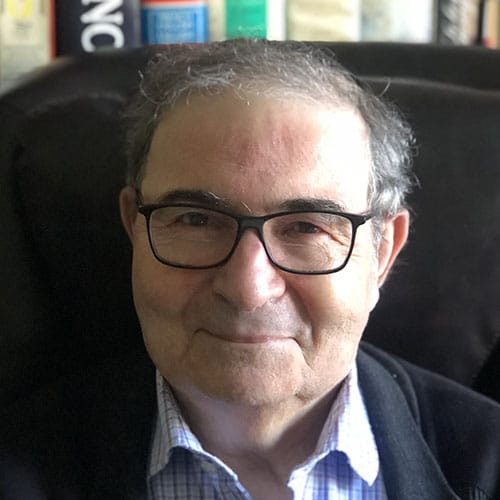 krisanapong detraphiphat/Getty Images
krisanapong detraphiphat/Getty Images The following are some reflections on various essential pieces of “wisdom literature” found in a portion of the Talmud called the “Ethics of the Fathers” (“Pirke Avot”).
The Keys to a Successful Life
“Accept a Torah teacher upon yourself; acquire a friend for yourself, and judge everyone favourably” (Pirke Avot 1:6).
Although the sages refer to Torah learning, this lesson can be applied to study of any kind. The idea is to accept that learning is critically important—it is mentioned first. No time limit is mentioned. This indicates that learning is to be a lifelong endeavour. The Torah scholar is one who embarks on daily study and accepts the fact that he or she has begun a lifetime journey, just as academics know that they will never exhaust the unending quest that is the study of any subject of substance.
Similarly, academic study requires the same patience, depth and commitment as Jewish source texts. These are the qualities of any truly educated person in any field of study.
The second part basically says not to “go it alone” in life. We need others, we need a friend, we need feedback and a sounding board for our thoughts and actions. The pandemic certainly brought that home to us.
The teacher can be a chavruta or study partner, someone who shares your interest. A variety of approaches, formal and informal, allow for different ways to interact with the text. It is not a coincidence that “friend” is mentioned after “teacher.” Both involve establishing lifelong relationships of mutual respect. The friend is “for yourself” because extending yourself for another is a benefit for both of you, as you gain as much as your friend does.
Lifelong learning and developing true friendships should give a person an appreciation of others, an understanding of life and the perspective to realize that the world is made of others.
Finally, “Judge everyone favourably.” Lifelong learning and developing true friendships should give a person an appreciation of others, an understanding of life and the perspective to realize that the world is made of others. We need to find common cause with people like us and with people unlike us.
Wisdom, Strength, Wealth, Honour
“Ben Zoma says; Who is wise? He who learns from every person. Who is strong? He who exerts control over himself. Who is rich? He who is happy with his lot. Who is honoured? He who honours others” (Pirke Avot, 4:1).
As with study, wisdom does not come from within us but by learning from others. Not just one person or one group but “from every person.” Expanding one’s horizons, enhancing one’s perspective is the key to wisdom.
Strength is not power over others, as we see too often in human relationships and in international affairs, but in people’s ability to grapple with their demons, and to gain an understanding of themselves so that they act with grace and dignity born of self-respect and respect for others.
Wealth will never satisfy, no matter how much one has, unless one is grateful for what one has, because there is no end to the acquisition of wealth. Ben Zoma is not suggesting fatalism and the acceptance of poverty, but is instead advocating a general attitude that makes gratitude, rather than avarice, the goal.
Honour is mentioned last because it is the sum of the previous parts: If one is wise and strong and grateful, then one has the ingredients for honor. The crowning achievement is to have all the preceding blessings and yet not seek honor, but to be able to recognize the achievements of others. Therein lies the person Ben Zoma esteems as a whole person in a world of fragmented lives.
The Source of Hatred and Division
“Any dispute that is for the sake of Heaven will endure; but one that is not for the sake of Heaven will not endure. What kind of dispute was for the sake of Heaven? The dispute between Hillel and Shammai. And which was not for the sake of Heaven? The dispute of Korach and his entire company” (Pirke Avot, 5:20).
Hillel and Shammai were two Talmudic scholars with divergent views on most topics, but they both were genuine searchers for the truth and they honored each other’s quest. Korach, on the other hand, challenges Moses for the leadership of the Jewish people because of jealousy and self-aggrandizement.
Differences of opinion are necessary and good. If everyone thinks alike, no one is really thinking very much or very deeply at all. The Talmud is one long, extended discussion in which arguments are the norm and there is usually no “winner.” The point of it all is to bring the facts of the case to light for thoughtful insights and consideration.
The question is how we argue. What is the nature of our discourse? The Canadian poet E. J. Pratt wrote: “The mark of the educated man is not in his boast that he has built his mountain of facts and stood on the top of it, but in his admission that there may be other peaks in the same range with men on the top of them, and that, though their views of the landscape may be different from his, they are nonetheless legitimate.”
Our Mission
“You are not required to complete the task, yet you are not free to withdraw from it” (Pirke Avot, 2:21).
The dictum refers to the study of Torah, but stands as a principle that can be applied universally. As Rabbi Jonathan Sacks rephrased it, “We will not complete the journey; therefore inspire others to continue what we began.”
No one person can achieve all that is laid out in Pirke Avot, for we are mortal and fallible. Therefore we cannot be “required” to undertake to do all that needs doing, to reform the world by ourselves. Nevertheless, we need to make a contribution, to shoulder some of the burden, to assume some responsibility and to inspire others to continue the effort.
Jewish writing is not only a formulation of Jewish law. It should be understood as an intergenerational conversation about values, ethics and a philosophy of life. It is meant to spur us on as individuals and as a people because it embodies the moral framework of western civilization and remains an unsurpassed treasure for the enquiring mind.
Translations adapted from Pirke Avos: Maharal of Prague by Rabbi Tuvia Basser
Dr. Paul Socken is Distinguished Professor Emeritus and founder of the Jewish Studies Programme at the University of Waterloo.























 More news and opinions than at a Shabbat dinner, right in your inbox.
More news and opinions than at a Shabbat dinner, right in your inbox.